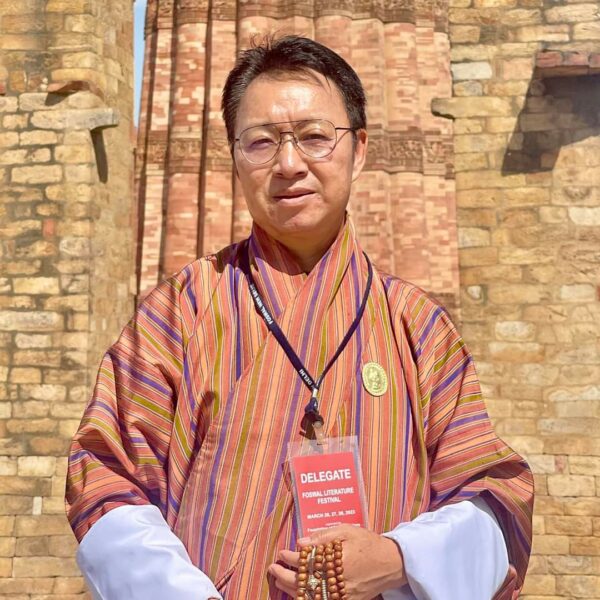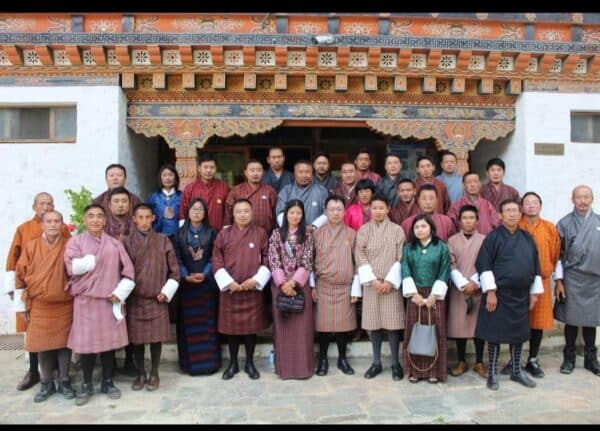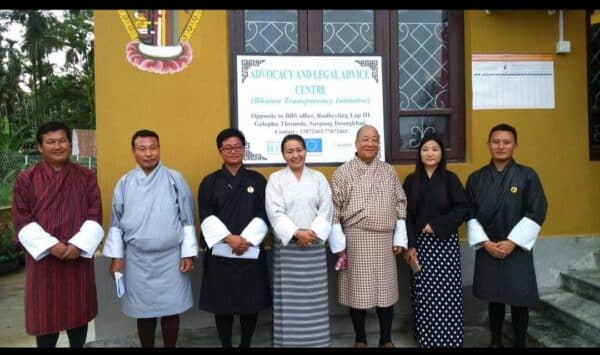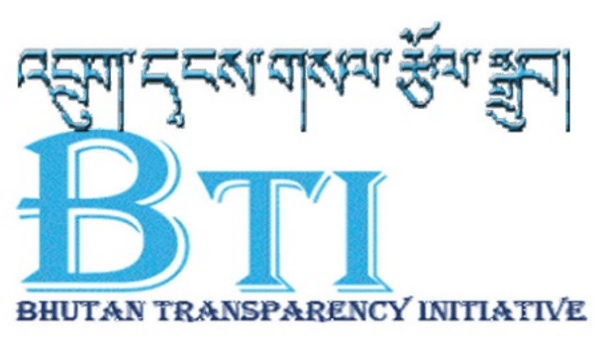
Please present yourself
My name is Rinzin Rinzin and I have been involved in anti-corruption work for almost two decades at different capacities. I worked as a member of parliament (National Council of the Parliament of Bhutan) for the first parliament of Bhutan (2008-2013). As a legislator, I was involved in the review and passing of the Anti-Corruption Act of Bhutan 2011, the Local Government Act of Bhutan 2009, and considerable number of other legislation. I also served as a member of Technical Advisory Committee of BTI (2014-2019) and as a member of the Board of Directors (2019-2020). I have been serving as the Executive Director of BTI since April 2021.
The Executive Director is the overall head of the organization overseeing day-day operations of the organization, resources mobilization, networking /coalition building, and representing BTI at all levels in-country or abroad.
What motivates you/inspires you to work in anti-corruption?
The moral responsibility to be a good human being is the main motivation. His Majesty’s noble command “I will not be corrupt and I will not tolerate corruption in others” inspires me deeply. Further, I aspire to contribute to rendering Bhutan one of the cleanest countries in the world in the shortest possible time.
What is an anti-corruption achievement you are proud of?
Being able to institutionalize social accountability in the local governments of a number of districts in Bhutan which contributed towards strengthening democratic decentralization at a grassroots level.
What have you learned from your organization’s work in anti-corruption that could be useful to others?
One of the key lessons I have learned from working in anti-corruption is the importance of building a strong coalition of stakeholders. This includes the government, civil society, the private sector, and the media. By working together, we can have a greater impact and create more effective anti-corruption solutions.
What are your organization’s main goals?
Bhutan Transparency Initiative (BTI) is a registered Civil Society Organization (CSO) with a mandate to promote Transparency, Accountability and Integrity in the country. BTI is committed to contribute towards building a just and equitable society in which communities thrive and there is no space for corruption to function. We work towards achieving the following:
- Strengthening demand and participation from society and the public to promote transparency, accountability and integrity;
- Building a strong social fence against corruption; and,
- Fostering collaboration and partnership with stakeholders to promote good governance in the country.
How does your organization operate?
The organization structure consists of a Board of Trustees/Directors (seven members) from diverse background, the executive director as a member secretary to the Board and three divisions under the management namely, Operations, Program, and Communication and Resource Management Divisions. We work with individuals from diverse backgrounds including vulnerable and marginalized groups, and institutions at different levels. We work closely with the National Anti-Corruption Commission of Bhutan (ACC), the Department of Local Governance (DLG) of Ministry of Home Affairs, Royal Audit Authority (RAA), the Royal Court of Justice (RCJ), the Office of Attorney General (OAG), Civil Society Organizations (CSOs), Local Governments, relevant private organizations, and the communities at large in the country.

What are the biggest successes your organization has accomplished in the field of anti-corruption in the past years?
Since its inception in 2014, BTI has established its credentials as the leading CSO for anti-corruption and governance. The organization rigorously engages in the areas of social accountability, promoting good governance, enhancing access to justice for marginalized individuals/groups and conducting both thematic and topical research at national and local levels. Some of our biggest achievements are as follows:
- Institutionalizing Social Accountability in the local governments of five districts;
- Institutionalizing Bhutan CSO Accountability Standards in all the registered CSOs in Bhutan;
- Supporting the victims and witnesses of corruption through a program called Advocacy and Legal Advice Program;
- Creating an informed and awakened citizenry through advocacy on corruption, making people understand the causes and impact of corruption, legal frameworks and their rights and responsibilities in combating corruption, in particular their basic rights and duties to demand greater transparency and accountability in the delivery of public services;
- Building databases on corruption, governance and the quality of public service delivery in the country by conducting periodic research studies.

What are the key challenges specific to your local context that your organization has been facing?
Some of the challenges we face are:
- Low levels of public awareness and understanding of anti-corruption issues;
- Lack of legislation pertaining to whistleblower protection and right to information;
- Limited access to resources.
What can other organizations learn from you?
Being able to build a close coalition with individuals and institutions has enabled us to get buy-in from our stakeholders in driving the anti-corruption agenda in the country. Our strategy involves the following:
- Enhancing collaboration networking with relevant organizations;
- Engaging our stakeholders rigorously in relevant activities;
- Doing the job and getting it well-done;
- Conducting research and disseminating the findings from research to relevant stakeholders to bring about systematic change.
To what extent has your organization been involved in the UNCAC Review Mechanism?
BTI is a member of the national UNCAC implementation review team.




